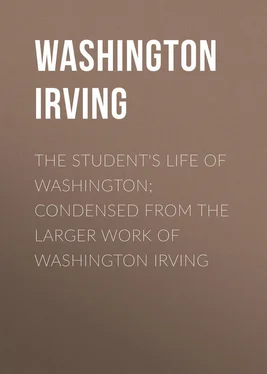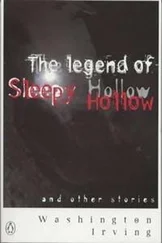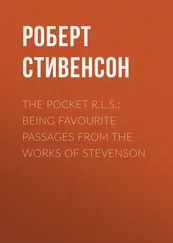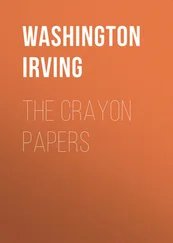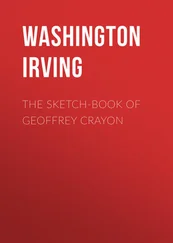Washington Irving - The Student's Life of Washington; Condensed from the Larger Work of Washington Irving
Здесь есть возможность читать онлайн «Washington Irving - The Student's Life of Washington; Condensed from the Larger Work of Washington Irving» — ознакомительный отрывок электронной книги совершенно бесплатно, а после прочтения отрывка купить полную версию. В некоторых случаях можно слушать аудио, скачать через торрент в формате fb2 и присутствует краткое содержание. Издательство: Иностранный паблик, Жанр: literature_19, foreign_antique, foreign_prose, на английском языке. Описание произведения, (предисловие) а так же отзывы посетителей доступны на портале библиотеки ЛибКат.
- Название:The Student's Life of Washington; Condensed from the Larger Work of Washington Irving
- Автор:
- Издательство:Иностранный паблик
- Жанр:
- Год:неизвестен
- ISBN:нет данных
- Рейтинг книги:3 / 5. Голосов: 1
-
Избранное:Добавить в избранное
- Отзывы:
-
Ваша оценка:
- 60
- 1
- 2
- 3
- 4
- 5
The Student's Life of Washington; Condensed from the Larger Work of Washington Irving: краткое содержание, описание и аннотация
Предлагаем к чтению аннотацию, описание, краткое содержание или предисловие (зависит от того, что написал сам автор книги «The Student's Life of Washington; Condensed from the Larger Work of Washington Irving»). Если вы не нашли необходимую информацию о книге — напишите в комментариях, мы постараемся отыскать её.
The Student's Life of Washington; Condensed from the Larger Work of Washington Irving — читать онлайн ознакомительный отрывок
Ниже представлен текст книги, разбитый по страницам. Система сохранения места последней прочитанной страницы, позволяет с удобством читать онлайн бесплатно книгу «The Student's Life of Washington; Condensed from the Larger Work of Washington Irving», без необходимости каждый раз заново искать на чём Вы остановились. Поставьте закладку, и сможете в любой момент перейти на страницу, на которой закончили чтение.
Интервал:
Закладка:
Washington, in the meantime, notwithstanding his weak state, being found most efficient in frontier service, was sent to Colonel Dunbar's camp, forty miles distant, with orders for him to hurry forward provisions, hospital stores, and wagons for the wounded, under the escort of two grenadier companies. It was a hard and a melancholy ride throughout the night and the following day. The tidings of the defeat preceded him, borne by the wagoners who had mounted their horses, on Braddock's fall, and fled from the field of battle.
Washington arrived at the camp in the evening. The orders which he brought were executed during the night and he was in the saddle early in the morning accompanying the convoy of supplies. At Gist's plantation, about thirteen miles off, he met Gage and his scanty force escorting Braddock and his wounded officers. Captain Stewart, and a sad remnant of the Virginia light horse, still accompanied the general as his guard. The Captain had been unremitting in his attentions to him during the retreat. There was a halt of one day at Dunbar's camp for the repose and relief of the wounded. On the 13th they resumed their melancholy march, and that night reached the Great Meadows.
The proud spirit of Braddock was broken by his defeat. He remained silent the first evening after the battle, only ejaculating at night, "Who would have thought it!" He was equally silent the following day; yet hope still seemed to linger in his breast, from another ejaculation: "We shall better know how to deal with them another time!" He was grateful for the attentions paid to him by Captain Stewart and Washington, and more than once, it is said, expressed his admiration of the gallantry displayed by the Virginians in the action. He died on the night of the 13th, at the Great Meadows, the place of Washington's discomfiture in the previous year. His obsequies were performed before break of day. The chaplain having been wounded, Washington read the funeral service.
Reproach spared him not, even when in his grave. The failure of the expedition was attributed both in England and America to his obstinacy, his technical pedantry, and his military conceit. He had been continually warned to be on his guard against ambush and surprise, but without avail. Had he taken the advice urged on him by Washington and others, to employ scouting parties of Indians and rangers, he would never have been so signally surprised and defeated. Still his dauntless conduct on the field of battle shows him to have been a man of fearless spirit; and he was universally allowed to be an accomplished disciplinarian.
The obsequies of the unfortunate Braddock being finished, the escort continued its retreat with the sick and wounded. On the 17th, the sad cavalcade reached the fort, and were relieved from the incessant apprehension of pursuit. Here, too, flying reports had preceded them, brought by fugitives from the battle, who, with the disposition usual in such cases to exaggerate, had represented the whole army as massacred. Dunbar arrived shortly afterward with the remainder of the army.
The true reason why the enemy did not pursue the retreating army was not known until some time afterwards, and added to the disgrace of the defeat. They were not the main force of the French, but a mere detachment of 72 regulars, 146 Canadians, and 637 Indians – 855 in all, led by Captain de Beaujeu. De Contrecoeur, the commander of Fort Duquesne, had received information, through his scouts, that the English, three thousand strong, were within six leagues of his fort. Despairing of making an effectual defence against such a superior force, he was balancing in his mind whether to abandon his fort without awaiting their arrival, or to capitulate on honorable terms. In this dilemma, Beaujeu prevailed on him to let him sally forth with a detachment to form an ambush and give check to the enemy. De Beaujeu was to have taken post at the river, and disputed the passage at the ford. For that purpose he was hurrying forward when discovered by the pioneers of Gage's advance party. He was a gallant officer, and fell at the beginning of the fight. The whole number of killed and wounded of French and Indians did not exceed seventy.
The affair of Braddock remains a memorable event in American history, and has been characterized as "the most extraordinary victory ever obtained, and the farthest flight ever made." It struck a fatal blow to the deference for British prowess, which once amounted almost to bigotry, throughout the provinces.
CHAPTER IX.
WASHINGTON IN COMMAND. – PANICS ON THE FRONTIER
Washington arrived at Mount Vernon on the 26th of July, still in feeble condition from his long illness. His campaigning, thus far, had trenched upon his private fortune, and impaired one of the best of constitutions. His connection with the army ceased at the death of Braddock, but his military duties continued as adjutant-general of the northern division of the province, and he immediately issued orders for the county lieutenants to hold the militia in readiness for parade and exercise, foreseeing that, in the present defenceless state of the frontier, there would be need of their services.
Tidings of the rout and retreat of the army had circulated far and near, and spread consternation throughout the country. Immediate incursions both of French and Indians were apprehended; and volunteer companies began to form, for the purpose of marching across the mountains to the scene of danger.
On the 4th of August, Governor Dinwiddie convened the Assembly to devise measures for the public safety. The sense of danger had quickened the slow patriotism of the burgesses; they no longer held back supplies; forty thousand pounds were promptly voted, and orders issued for the raising of a regiment of one thousand men.
Washington's friends urged him to present himself at Williamsburg as a candidate for the command; they were confident of his success, notwithstanding that strong interest was making for the governor's favorite, Colonel Innes. With mingled modesty and pride, Washington declined to be a solicitor. The only terms, he said, on which he would accept a command were a certainty as to rank and emoluments, a right to appoint his field officers, and the supply of a sufficient military chest; but to solicit the command, and, at the same time, to make stipulations, would be a little incongruous, and carry with it the face of self-sufficiency.
While this was in agitation, he received letters from his mother, again imploring him not to risk himself in these frontier wars. His answer was characteristic: "Honored Madam – If it is in my power to avoid going to the Ohio again, I shall; but if the command is pressed upon me by the general voice of the country, and offered upon such terms as cannot be objected against, it would reflect dishonor on me to refuse it; and that, I am sure, must, and ought, to give you greater uneasiness than my going in an honorable command. Upon no other terms will I accept it."
On the very day that this letter was despatched (Aug. 14), he received intelligence of his appointment to the command on the terms specified in his letters to his friends. His commission nominated him commander-in-chief of all the forces raised, or to be raised in the colony. The Assembly also voted three hundred pounds to him, and proportionate sums to the other officers and to the privates of the Virginia companies, in consideration of their gallant conduct and their losses in the late battle. The officers next in command under him were Lieutenant-Colonel Adam Stephens and Major Andrew Lewis.
The appointment of Washington to his present station was the more gratifying and honorable from being a popular one, made in deference to public sentiment; to which Governor Dinwiddie was obliged to sacrifice his strong inclination in favor of Colonel Innes. It is thought that the governor never afterwards regarded Washington with a friendly eye. His conduct towards him subsequently was on various occasions cold and ungracious.
Читать дальшеИнтервал:
Закладка:
Похожие книги на «The Student's Life of Washington; Condensed from the Larger Work of Washington Irving»
Представляем Вашему вниманию похожие книги на «The Student's Life of Washington; Condensed from the Larger Work of Washington Irving» списком для выбора. Мы отобрали схожую по названию и смыслу литературу в надежде предоставить читателям больше вариантов отыскать новые, интересные, ещё непрочитанные произведения.
Обсуждение, отзывы о книге «The Student's Life of Washington; Condensed from the Larger Work of Washington Irving» и просто собственные мнения читателей. Оставьте ваши комментарии, напишите, что Вы думаете о произведении, его смысле или главных героях. Укажите что конкретно понравилось, а что нет, и почему Вы так считаете.
